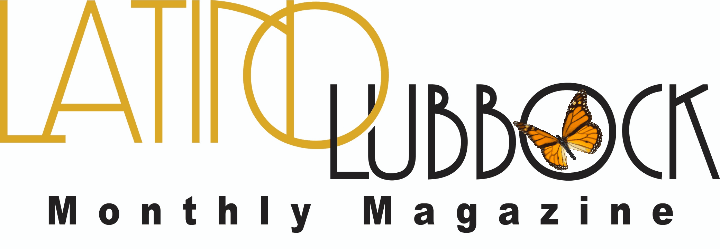DPS Increases Traffic Enforcement for Thanksgiving Holiday
Troopers will increase enforcement Nov. 24th

AUSTIN – There is a lot to be thankful for this year, and the Texas Department of Public Safety (DPS) wants to ensure people are able to get to and from their holiday celebrations safely. Texas Highway Patrol Troopers will increase enforcement on the roads from Wednesday, Nov. 24, through Sunday, Nov. 28. DPS Troopers will be looking for people not wearing seat belts, driving while intoxicated, speeding and failing to follow the Move Over, Slow Down law, among other traffic violations.
“This Thanksgiving more people will be out and it’s important to remember it’s up to each one of us to keep the roads safe,” said DPS Director Steven McCraw. “DPS will do its part to keep Texas safe by holding people accountable, and we want everyone who may be driving for the holiday to do their part by obeying all traffic laws, so everyone gets to their destinations unharmed.”
DPS participates annually in the nationwide Operation CARE (Crash Awareness and Reduction Effort) initiative for the Thanksgiving holiday. During the 2020 enforcement effort, a total of 36,902 warnings and citations were issued, including 5,287 for speeding; 752 for driving without insurance; 513 for seat belt and child seat violations; and 245 violations for Move Over, Slow Down. Last year’s enforcement efforts also resulted in 395 felony arrests, 205 DWI arrests and 120 fugitive arrests.
DPS offers the following safety tips for the Thanksgiving holiday:
Don’t drink and drive. Make alternate plans if you are consuming alcohol.
Move Over or Slow Down for police, fire, EMS, Texas Department of Transportation (TxDOT) vehicles and tow trucks stopped on the side of the road with emergency lights activated. Show the same courtesy to fellow drivers who are stopped on the side of the road. This year alone, between Jan. 1 and Nov. 12, DPS issued 11,165 warnings and citations for violations of this law.
Buckle up everyone in the vehicle — it’s the law.
Slow down, especially in bad weather, heavy traffic, unfamiliar areas or construction zones.
Eliminate distractions while driving, including the use of mobile devices. Texas law prohibits the use of portable wireless devices to read, write or send an electronic message unless the vehicle is stopped.
If you’re using a navigation device or app, have a passenger operate it, so you can keep your eyes on the road.
Drive defensively, as holiday travel can present additional challenges.
Don’t drive fatigued — allow plenty of time to reach your destination.
On multi-lane roads, use the left lane for passing only. Not only is it courteous and avoids impeding traffic, Texas law requires slower traffic to keep to the right and to use the left lane for passing only (when posted).
Don’t cut in front of large trucks, and try not to brake quickly in front of them. They can’t maneuver as easily as passenger vehicles and pickup trucks.
If you can Steer It, Clear It: If you are involved in a non-injury crash and your vehicle can be moved, clear the traffic lanes to minimize traffic impact. Leaving vehicles in a traffic lane increases traffic congestion and leaves those involved with an increased risk of harm or a secondary wreck. On some highways, if you don’t move your vehicle when it’s safe to do so, it’s against the law.
Check your vehicle to make sure it’s properly maintained and always ensure your cargo is secure.
Report road hazards or anything suspicious to the nearest law enforcement agency.
Monitor weather and road conditions wherever you are traveling. For road conditions and closures in Texas, visit Drive Texas.
###
Posted courtesy of Latino Lubbock Magazine Digital Media Read the November Issue of Latino Lubbock Magazine online at https://www.latinolubbock.net/magazine-preview Please visit www.latinolubbock.net for a centralized list of COVID-19 resources. For advertising call (806)792-1212
La HHSC lanza chatbot en español para los beneficiarios de WIC
AUSTIN.– La Comisión de Salud y Servicios Humanos (HHSC) de Texas se está conectando con los texanos que hablan español a través de Maya, un chatbot que proporciona información en español sobre los servicios disponibles de WIC a las nuevas mamás y familias con niños pequeños. El español es el idioma principal en más del 35 por ciento de los hogares de Texas que reciben servicios de WIC.
Las familias pueden encontrar a Maya en el sitio web de WIC de Texas en español. El chatbot es una herramienta de comunicación automatizada en línea y fácil de usar que responde a preguntas comunes adaptadas a las necesidades de un usuario.
“Estamos muy contentos de lanzar esta herramienta para las personas con preguntas sobre nutrición, lactancia materna y sobre cómo tener acceso a apoyos para sus familias”, dijo Edgar Curtis, director de WIC de Texas. “Podemos llegar a muchos más clientes de WIC que hablan español cuando sea más conveniente para ellos. Nos enorgullece ofrecer recursos excelentes a nuestros clientes, familias y comunidades”.
Para desarrollar el chatbot, WIC de Texas utilizó una subvención del Departamento de Agricultura de EE.UU. para proyectos especiales. Antes de la implementación de Maya, el personal del programa trabajó con investigadores de la Universidad Texas State para evaluar el asistente virtual y asegurar la utilidad y la operatividad de sus funciones. La institución también colaboró con la implementación de la versión en inglés del chatbot el año pasado. Los investigadores continuarán monitoreando el chatbot para identificar aspectos a mejorar.
La traducción del chatbot es solo el esfuerzo más reciente para mejorar la experiencia de las personas que buscan información sobre los servicios de WIC de Texas. WIC de Texas empezó a ofrecer en enero servicios de chat en vivo y mensajes de texto de dos vías (en inglés). La plataforma de chat en vivo y mensajes de texto ofrece opciones para una transición continua del chat a llamadas de voz y video sin necesidad de que los usuarios descarguen una aplicación.















Comentários